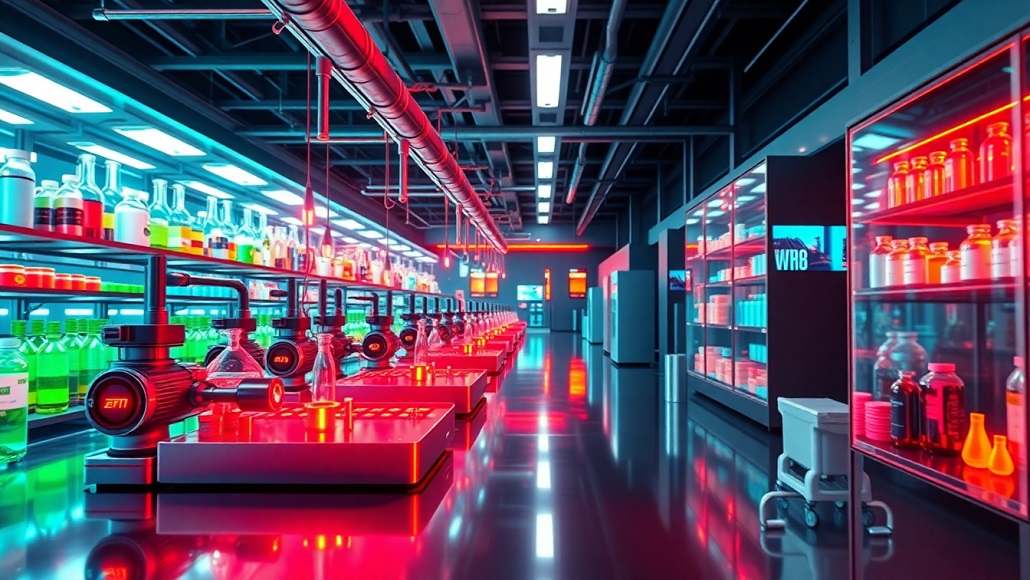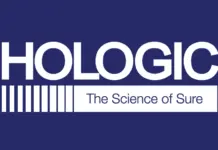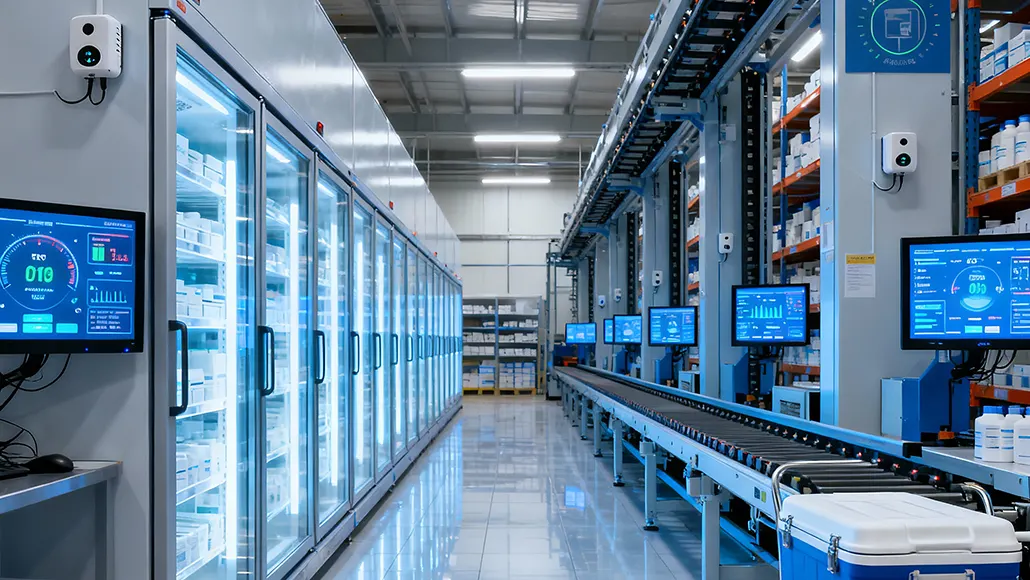AI-Powered Drug Discovery: Accelerating Innovation in the Middle East
The pharmaceutical industry stands at the threshold of a transformative era where artificial intelligence is fundamentally reshaping how new medicines are discovered, developed, and brought to market. As the global AI in drug discovery market surges from USD 1.98 billion in 2024 toward a projected USD 20.31 billion by 2034, representing a compound annual growth rate of 26.21 percent, the Middle East is positioning itself to capture a significant share of this revolutionary advancement. This technological leap promises to address one of the pharmaceutical industry’s most persistent challenges: the traditionally lengthy, costly, and often inefficient process of bringing new drugs from laboratory concept to patient bedside.
Traditional drug discovery has long been characterized by its demanding nature, typically requiring over a decade and exceeding USD 2 billion in investment to bring a single drug to market. The attrition rate remains staggeringly high, with nearly 90 percent of drug candidates failing due to insufficient efficacy or unforeseen safety concerns. Against this backdrop, AI in drug discovery emerges not merely as an incremental improvement but as a fundamental reimagining of pharmaceutical research and development. Machine learning algorithms can now analyze vast amounts of biological and chemical data in a fraction of the time previously required, identifying potential drug candidates with unprecedented speed and accuracy.
The Technological Foundation of AI in Drug Discovery
At its core, AI in drug discovery leverages multiple sophisticated technologies working in concert to accelerate and improve pharmaceutical development. Machine learning algorithms form the backbone of this transformation, enabling researchers to analyze complex biological systems and predict molecular interactions with remarkable precision. Deep learning techniques, particularly neural networks, have proven especially valuable in identifying patterns within genomics and proteomics data that would be virtually impossible for human researchers to discern manually.
The integration of AI into drug discovery encompasses several critical applications. Virtual screening capabilities allow researchers to evaluate millions of chemical compounds rapidly, dramatically reducing the number of compounds that require physical synthesis and laboratory testing. This computational approach to screening has proven particularly effective, with recent studies demonstrating that AI platforms can identify structurally novel hits for a substantial majority of evaluated targets. The technology shifts drug discovery away from serendipitous discovery toward structure-based search, making the entire process more rational, effective, and efficient.
Natural language processing represents another crucial component of AI drug discovery platforms, enabling systems to synthesize vast amounts of scientific literature and extract relevant insights for ongoing research projects. This capability proves invaluable when researchers need to understand disease mechanisms or identify potential drug-disease associations from the expanding corpus of biomedical literature. The ability to aggregate and synthesize information automatically accelerates the hypothesis formation and qualification stages that traditionally consumed substantial researcher time and effort.
Transforming Target Identification and Validation
The journey of drug discovery begins with target identification, where researchers must determine which biological molecules or pathways to address with potential therapeutics. AI has revolutionized this foundational stage by enabling comprehensive analysis of genomic, proteomic, and metabolomic data to identify disease-associated targets with far greater precision than traditional methods allowed. Machine learning models can now integrate data from multiple sources, including genetic studies, clinical databases, and experimental results, to predict which targets hold the greatest therapeutic promise for specific diseases.
Beyond simple identification, AI excels at predicting how potential drug candidates will interact with biological targets. These predictive capabilities stem from sophisticated algorithms trained on extensive datasets of known drug-target interactions, molecular structures, and biological activity profiles. By evaluating structural and chemical properties of both targets and potential drug molecules, AI systems can forecast binding affinities and likely therapeutic effects before researchers commit resources to laboratory synthesis and testing. This predictive power significantly reduces the risk of pursuing ineffective drug candidates through expensive development pipelines.
The validation stage, which confirms that modulating a specific target will produce desired therapeutic effects without unacceptable side effects, also benefits tremendously from AI capabilities. Machine learning models can analyze data from previous research and clinical trials to forecast the effectiveness of targeting specific biological molecules and assess the probability of adverse effects manifesting during later development stages. This early-stage risk assessment enables pharmaceutical companies to make more informed decisions about which programs to advance, substantially improving resource allocation and increasing the overall success rate of drug development portfolios.
Accelerating Lead Discovery and Optimization
Once viable targets have been identified, the drug discovery process moves into lead discovery, where researchers search for chemical compounds that effectively modulate the target. AI dramatically accelerates this phase through generative models capable of designing novel molecular structures specifically optimized for desired properties. These AI systems can propose millions of synthesizable compounds that traditional medicinal chemistry approaches would never have considered, vastly expanding the chemical space available for exploration.
The optimization of lead compounds represents one of AI drug discovery’s most compelling applications. After initial hits are identified, they typically require extensive modification to improve properties such as potency, selectivity, bioavailability, and safety. Machine learning algorithms can predict how specific structural modifications will affect these properties, enabling researchers to prioritize the most promising chemical modifications and reduce the number of synthesis-test cycles required. Recent advances have demonstrated that AI-driven approaches can achieve development timelines measured in months rather than years for progressing from initial hits to development candidates.
Pharmaceutical companies are increasingly adopting AI platforms that incorporate deep learning for structure-based drug design, enabling rapid, AI-powered searches of proprietary libraries containing trillions of synthesizable compounds. These platforms can identify structurally novel hits for targets that previously proved intractable with conventional approaches. The technology proves particularly valuable for addressing challenging targets in areas such as oncology, immunology, and neuroscience, where traditional drug discovery methods have struggled to produce viable therapeutics.
Predicting Drug Properties and Reducing Development Risks
A critical advantage of AI in drug discovery lies in its ability to predict multiple drug properties simultaneously, including pharmacokinetics, toxicity, and off-target effects. These predictive capabilities enable researchers to identify potential problems before compounds enter expensive and time-consuming preclinical testing phases. Machine learning models trained on extensive datasets of known drug properties can forecast how new compounds will be absorbed, distributed, metabolized, and excreted in the body, allowing early optimization of drug-like properties.
Toxicity prediction represents an especially valuable application, as unexpected adverse effects discovered during clinical trials constitute a major cause of drug development failures. AI systems can analyze structural features of proposed compounds and compare them against databases of known toxicological profiles to flag potential safety concerns. This early warning system enables medicinal chemists to modify problematic structural elements before investing in full development programs, substantially reducing the risk of late-stage failures that can cost pharmaceutical companies hundreds of millions of dollars.
The ability to predict drug-drug interactions and off-target effects provides additional layers of risk mitigation. As patients often take multiple medications concurrently, understanding potential interactions becomes crucial for ensuring drug safety. Machine learning algorithms can identify potential interaction risks by analyzing how different compounds affect shared metabolic pathways or compete for the same biological targets. Similarly, predicting off-target effects helps researchers understand whether drug candidates might inadvertently affect biological systems beyond their intended targets, potentially causing side effects that would compromise therapeutic viability.
Streamlining Clinical Development and Personalized Medicine
The impact of AI in drug discovery extends beyond preclinical stages into clinical development, where intelligent systems optimize trial design, patient recruitment, and outcome prediction. Machine learning algorithms can analyze patient data to identify optimal trial populations, ensuring that clinical studies enroll participants most likely to demonstrate therapeutic responses. This capability proves especially valuable for trials involving rare diseases or specific patient subpopulations where recruitment challenges have historically delayed or prevented important studies.
Predictive modeling for clinical trial outcomes represents another frontier where AI demonstrates substantial value. By analyzing data from previous trials, patient characteristics, and molecular biomarkers, machine learning systems can forecast the likelihood of trial success and identify factors that might compromise outcomes. This predictive capability enables pharmaceutical companies to make data-driven decisions about which programs to advance into clinical testing and how to structure trials for optimal chances of demonstrating efficacy and safety.
The convergence of AI drug discovery with personalized medicine opens particularly exciting possibilities for the future of pharmaceutical development. As AI systems analyze individual patient genomic profiles, biomarkers, and clinical characteristics, they can identify which patients are most likely to respond to specific therapies and predict optimal dosing regimens. This capability moves medicine toward truly personalized treatment approaches, where therapeutic decisions are guided by comprehensive understanding of individual patient biology rather than population averages. The integration of real-world patient data from electronic health records and wearable devices further enhances this personalized approach, creating feedback loops that continuously improve therapeutic strategies.
The Middle East’s Strategic Position in AI Drug Discovery
The Middle East, particularly the Gulf region, has emerged as an increasingly important player in the global AI drug discovery landscape. The opening of major AI-powered biotechnology research centers in Abu Dhabi signals the region’s commitment to becoming a hub for pharmaceutical innovation. These facilities combine global talent in artificial intelligence and software development with state-of-the-art computational infrastructure to develop and deploy cutting-edge drug discovery platforms.
Regional advantages position the Middle East favorably for AI drug discovery leadership. The combination of substantial financial resources, progressive economic policies, and strategic government support creates an environment conducive to biotechnology innovation. Abu Dhabi’s location in the International Renewable Energy Agency headquarters at Masdar City, for instance, provides access to sustainable infrastructure while positioning research centers within a broader innovation ecosystem. The compact geographical footprint of Gulf states facilitates rapid collaboration among key stakeholders, from academic institutions to pharmaceutical companies to healthcare providers.
Investment in digital health ecosystems throughout the Middle East further amplifies the region’s AI drug discovery potential. The proliferation of wearable technology and mobile health applications generates vast streams of real-world patient data that can feed AI drug discovery platforms. This data proves invaluable for understanding disease progression, identifying patient populations for clinical trials, and validating therapeutic approaches in diverse populations. The region’s genomic research initiatives, including national genome programs, create additional datasets that enhance AI capabilities for developing personalized medicines tailored to regional genetic profiles.
The Middle East also benefits from its position as a bridge between established pharmaceutical markets in Europe and North America and rapidly growing markets across Asia and Africa. This geographical advantage, combined with improving regulatory frameworks and increasing harmonization with international standards, positions the region as an attractive location for pharmaceutical companies seeking to develop drugs for global markets. The implementation of fast-track approval pathways for innovative medications, including biosimilars, further enhances the region’s appeal as a base for AI-driven drug discovery operations.
Overcoming Implementation Challenges
Despite its transformative potential, AI in drug discovery faces several challenges that must be addressed to realize its full promise. Data quality and availability represent fundamental concerns, as machine learning algorithms require extensive, high-quality datasets for training and validation. The pharmaceutical industry has historically struggled with data silos, inconsistent data formats, and limited data sharing between organizations. Addressing these challenges requires industry-wide collaboration to establish data standards, create shared databases, and develop frameworks for responsible data sharing that protect intellectual property while enabling collective advancement.
The interpretability of AI models poses another significant challenge, particularly in highly regulated industries like pharmaceuticals. Regulatory agencies and pharmaceutical companies need to understand how AI systems arrive at their predictions and recommendations to ensure safety and build trust. The development of explainable AI approaches that provide transparent reasoning for their outputs represents an active area of research with important implications for regulatory acceptance of AI-discovered drugs. Recent initiatives focus on creating AI systems that not only make predictions but also explain the biological and chemical rationale underlying their recommendations.
Integration of AI systems into existing pharmaceutical research and development workflows requires careful change management and workforce development. Scientists and pharmaceutical professionals need training to effectively leverage AI tools and interpret their outputs. Organizations must develop new processes that incorporate AI insights into decision-making while preserving the critical thinking and domain expertise that human researchers bring to drug discovery. This human-AI collaboration model, rather than AI replacement of human scientists, represents the most promising path forward for pharmaceutical innovation.
Regulatory frameworks continue to evolve to address the unique characteristics of AI-discovered drugs. Regulatory agencies worldwide are developing guidance documents and frameworks for evaluating drugs developed using artificial intelligence and machine learning. These evolving regulations aim to ensure that AI-discovered therapies meet rigorous safety and efficacy standards while not imposing unnecessary barriers that would slow innovation. The pharmaceutical industry’s engagement with regulators to shape appropriate oversight frameworks will prove crucial for enabling the responsible advancement of AI drug discovery.
Economic Impact and Industry Transformation
The economic implications of AI in drug discovery extend far beyond simple cost reduction, fundamentally transforming the economics of pharmaceutical development. The traditional model of drug discovery, with its high failure rates and lengthy timelines, has driven consolidation in the pharmaceutical industry as only the largest companies could bear the financial risks of modern drug development. AI’s ability to improve success rates, reduce development timelines, and lower costs could democratize drug discovery, enabling smaller biotechnology companies and academic institutions to compete effectively in therapeutic innovation.
Estimates suggest that comprehensive implementation of AI and related technologies could accelerate drug development by more than 500 days and reduce development costs by 25 percent. These improvements would have profound implications for pharmaceutical companies’ return on investment calculations and could enable development of drugs for smaller patient populations or diseases that previously lacked viable commercial markets. The technology particularly benefits development of therapies for rare diseases and precision medicines tailored to specific genetic profiles, areas where traditional development economics have often proven prohibitive.
The shift toward AI-driven drug discovery is fostering new business models and partnership structures within the pharmaceutical ecosystem. AI-focused biotechnology startups are forming strategic collaborations with large pharmaceutical companies, combining computational expertise with clinical development capabilities and market access. These partnerships often involve innovative deal structures where AI companies receive milestone payments and royalties based on successful drug approvals, aligning incentives and sharing risks between technology providers and pharmaceutical developers. Major pharmaceutical companies are establishing their own AI research groups while simultaneously investing in and partnering with AI drug discovery startups, creating a dynamic ecosystem of innovation.
Investment in AI drug discovery continues to accelerate despite broader economic uncertainties affecting the biotechnology sector. The recognition that AI represents not an optional enhancement but a competitive necessity drives pharmaceutical companies to increase their commitments to artificial intelligence and machine learning capabilities. This investment encompasses not only technology platforms and computing infrastructure but also talent acquisition, training programs, and organizational changes required to fully leverage AI capabilities across drug discovery operations.
Future Directions and Emerging Opportunities
The future trajectory of AI in drug discovery points toward increasingly sophisticated integration of multiple technologies and data sources. The convergence of AI with quantum computing promises to unlock new levels of computational power for molecular simulation and drug design, enabling more accurate predictions of drug-target interactions and chemical properties. While practical quantum computing for drug discovery remains in early stages, ongoing research suggests that quantum-classical hybrid approaches could provide near-term advantages for specific computational challenges in pharmaceutical research.
The integration of AI drug discovery platforms with digital twin technologies represents another frontier with significant potential. Digital twins of biological systems, from individual organs to complete patient profiles, could enable researchers to simulate drug effects in silico before conducting physical experiments. These virtual models, continuously updated with real-world patient data, would allow testing of therapeutic hypotheses and optimization of treatment regimens with unprecedented speed and precision. The combination of AI-designed drugs with digital twin testing platforms could dramatically accelerate the development of effective, safe therapies while reducing reliance on animal testing.
Multimodal AI systems that integrate diverse data types including text, images, molecular structures, and clinical data promise to provide more comprehensive understanding of disease mechanisms and therapeutic opportunities. These systems could analyze medical imaging, pathology slides, electronic health records, and genomic data simultaneously to identify disease biomarkers, predict therapeutic responses, and personalize treatment strategies. The development of large language models specifically trained on biomedical literature and pharmaceutical data is already beginning to transform how researchers access and synthesize scientific knowledge.
The evolution toward autonomous drug discovery systems represents perhaps the most ambitious vision for AI’s role in pharmaceutical research. These systems would integrate target identification, drug design, synthesis planning, and experimental validation into seamless workflows requiring minimal human intervention. While fully autonomous discovery remains years away, incremental progress toward this goal continues through the development of lab automation systems that can execute AI-designed experiments, analyze results, and iteratively refine therapeutic hypotheses. The combination of AI-driven decision-making with robotic laboratory automation creates feedback loops that accelerate the learning and optimization processes underlying drug discovery.
The Middle East’s continued investment in AI drug discovery infrastructure, combined with its strategic geographic position, growing life sciences ecosystem, and commitment to healthcare innovation, positions the region to play an increasingly important role in global pharmaceutical development. As AI technologies mature and regulatory frameworks evolve to accommodate AI-discovered drugs, the democratization of drug discovery capabilities could enable the region to become not merely a consumer of pharmaceutical innovations developed elsewhere but a generator of novel therapeutics addressing both regional and global health needs. This transformation from pharmaceutical importer to innovator represents a strategic opportunity with profound implications for economic development, healthcare outcomes, and scientific leadership across the Middle East.
























